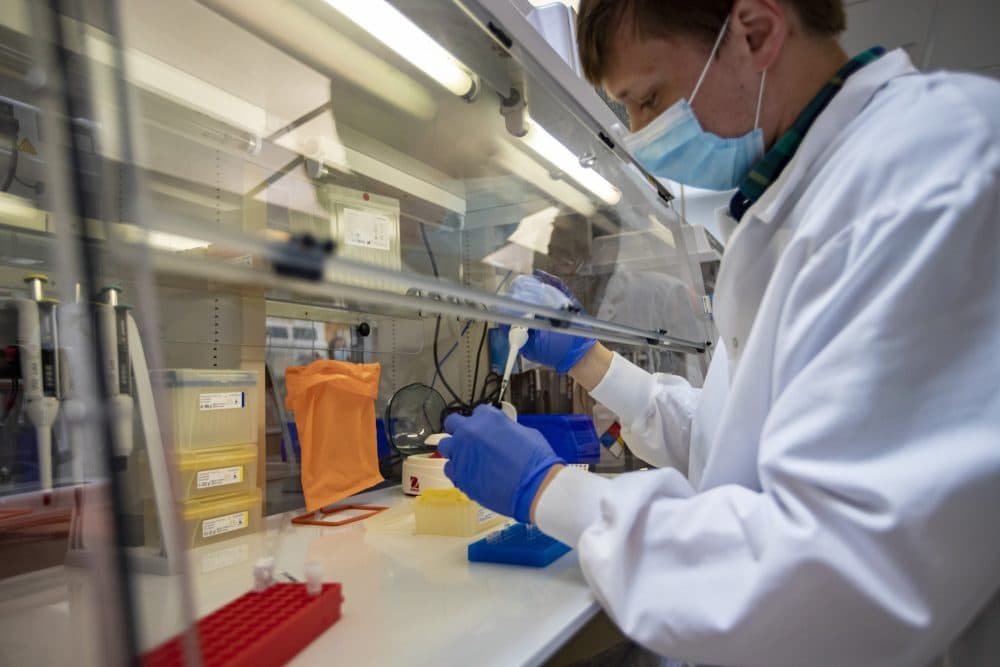Advertisement
Coronavirus Coverage
MIT, Harvard Researchers Say They're Close To A New Rapid COVID Test

Researchers say they have potentially developed a new, more convenient tests for the coronavirus that uses the genetic technology known as CRISPR and could produce results in less than an hour.
The researchers at Massachusetts Institute of Technology and the Broad Institute say the new test, known as STOPCovid, was found to be as accurate as the current molecular test known as a PCR test. They tested 400 patient samples and the new test was found to detect 93% of positive cases. Their findings were published in the New England Journal of Medicine this week.
"We found that we could essentially match the gold standard," said Jonathan Gootenberg, a McGovern Institute fellow at MIT. "This could be done very rapidly and without expensive instrumentation."
Omar Abudayyeh, another MIT McGovern fellow working on the research, said the test is sensitive and can detect even a low amount of the virus. He said the testing would be most useful as a regular diagnostic tool that would be repeatedly test patients.
"If you're cheap enough and easy enough to run every day, you're going to capture someone when their viral load is high enough that you'll be able to take them out into quarantine before they can spread," Abudayyeh said.
The researchers used a CRISPR-based process to concentrate viral genetic material in a test sample. They said that would eliminate the need for the testing materials that are currently in short supply because of the pandemic, and a commercial lab would not have to process the results.
"Using these technologies will really allow for much more rapid testing — down from days to sometimes less than an hour," said MIT McGovern fellow Jonathan Gootenberg. "That would enable a drastic change in how the tracing and handling of the pandemic is done."
They hope to further simplify the test so it can be used by patients at home. Gootenberg said they are working with clinical test developers to have this type of test on the market in a few months.
The researchers worked with other scientists at the University of Washington, Fred Hutchinson Cancer Research Center, Brigham and Women's Hospital, and the Ragon Institute.
